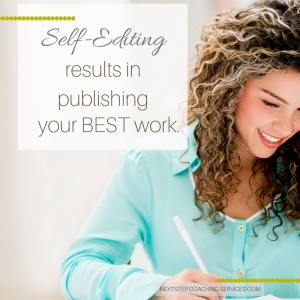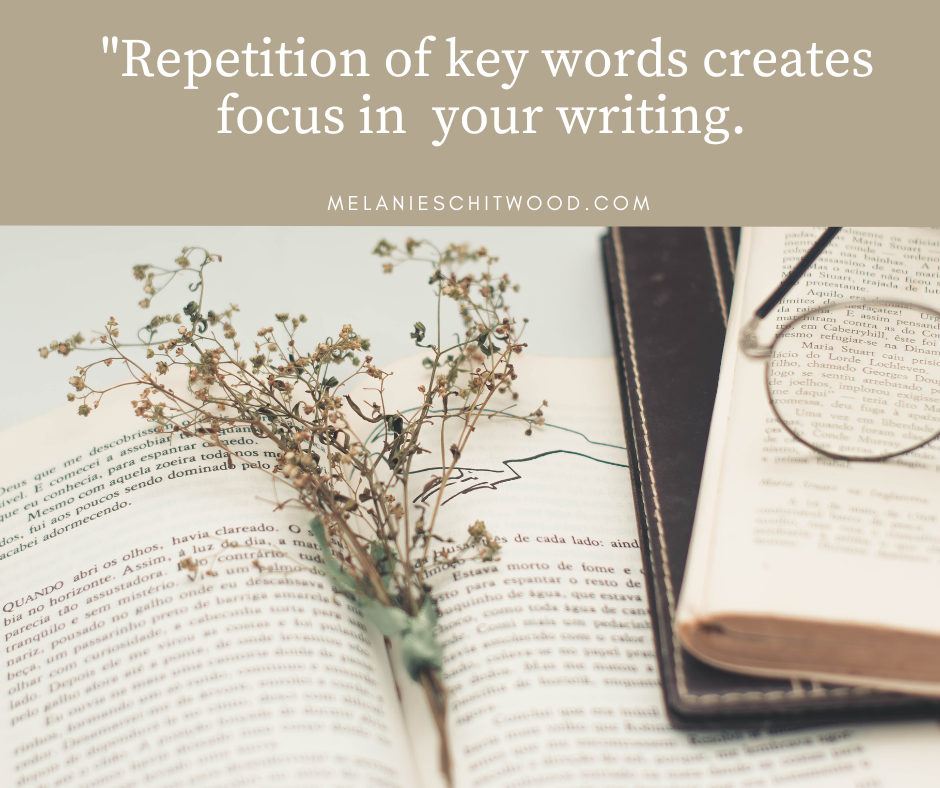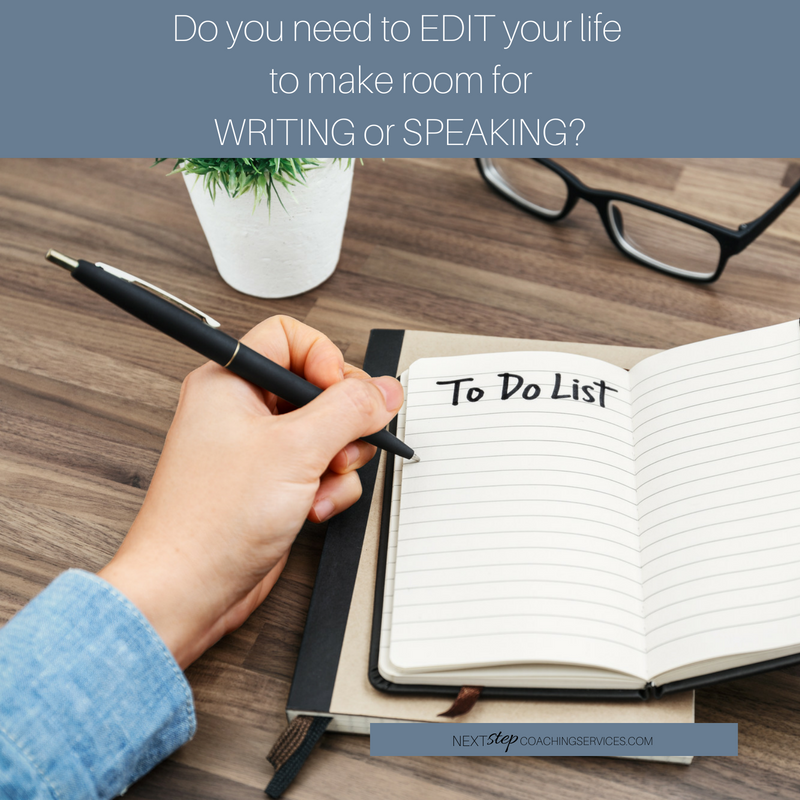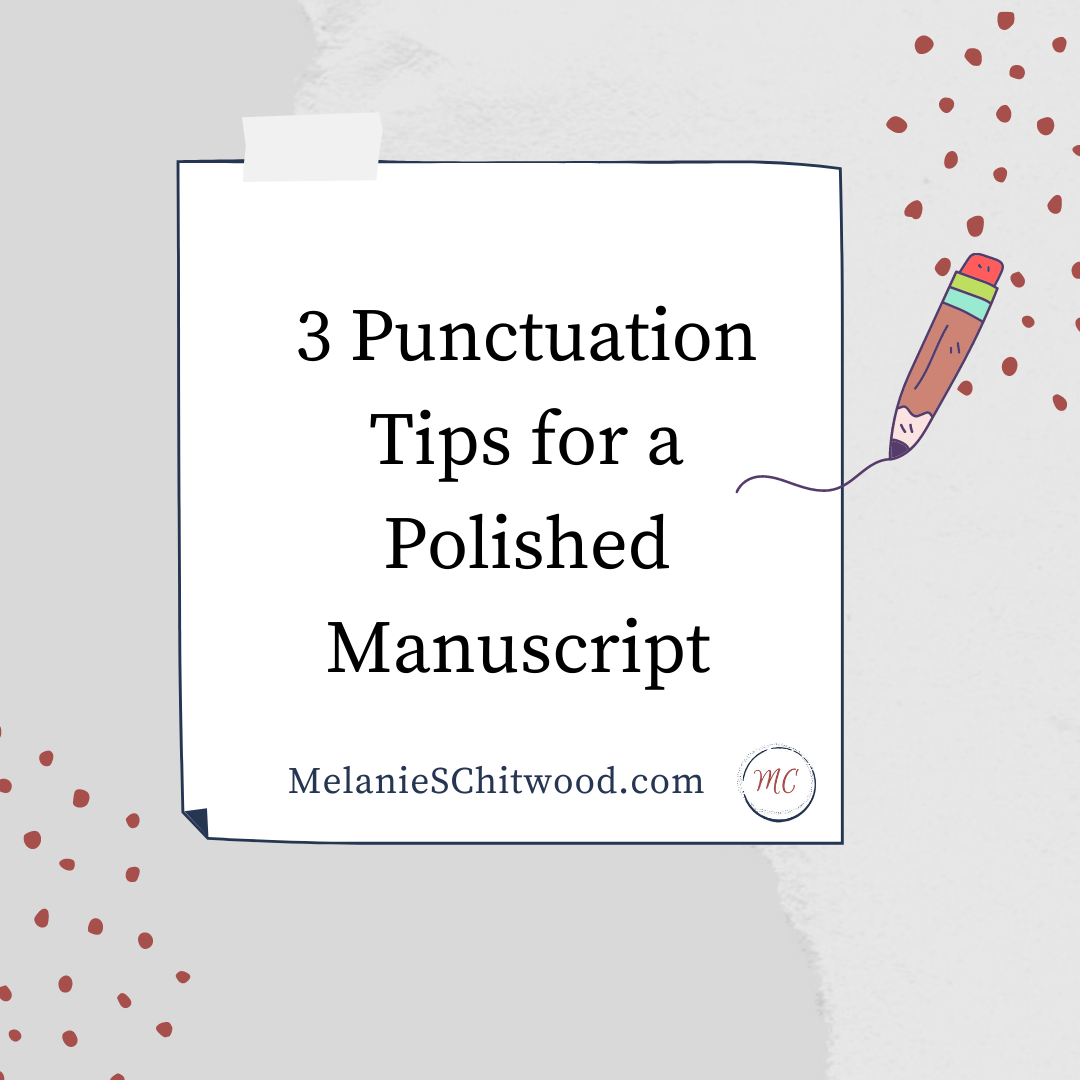5 Tips to Help You Self-Edit
Self-editing is an important part of becoming a better writer. But sometimes it’s challenging to do – or worse, easy to skip. When it comes to self-editing, these five tips will help you effectively self-edit.
But first, why is self-editing so important? While there are many answers to that question, the one that stands out to me is that publishing a work with numerous errors undermines your authority as a writer. Self-editing allows you to publish your best work.
Take small and large breaks
Here’s how my writing sessions typically proceed. Write for an hour. Get-up to take a small break. Load the dishwasher or check FB. Go upstairs to see how dirty my son’s bathroom is. Decide not to clean it, and go back to my writing. Repeat.
My goal is to stick with writing for several hours without any rewriting or editing. This is where the large break comes into play. I wait for time to pass – several hours, the next day – to look at my work again. Many editors say let days pass. Fresh eyes; fresh perspective. Then I’m more likely to see needed changes in organization, lack of transitions, or missed commas and periods.
Look at your document in different formats
- Change your font size. Making my font larger allows me to see errors more easily. Also, if you typically write in a certain font, try changing your font. Does that help you see your writing in a new light?
- Print your manuscript. Go old-school and read your manuscript in printed form. I’m always amazed at how helpful this is to me.
Be careful not to over-edit
When you over-edit, you can all too easily remove that unique voice of your writing. You might end up with a manuscript that sounds generic, lackluster…and not you.
The worst thing about over-editing? Over-editing is a tool Satan can use against you. Those of us who get stuck in the “this is not good enough” or “this is not perfect” thought category can easily be derailed by the taunts of the enemy. Listen to the enemy’s voice long enough, and you will take yourself out of the writing game. The enemy wins, not Jesus. That’s a travesty to God’s kingdom.
Be careful not to under-edit
Under-editing can be just as detrimental as over-editing. You’re going to find spelling, grammar, and wording changes you want to make.
For a short piece (blog or devotional) I typically do a run-through five or six times. For a longer piece of writing (chapters; manuscripts; book proposals) I will go through a minimum of three times.
And my last and favorite tip…
READ YOUR WORK ALOUD
Every. Single. Word.
Reading aloud makes us slow down and actually read every word. It prevents us from filling in the blanks with words that are not on the page.
Reading aloud has another advantage: we “hear” our writing. Our writing should have a certain unique rhythm, and sometimes we find that more readily when reading aloud. Reading aloud also makes us hear – and sometimes cringe – at those go-to words/phrases we use too often. Can you edit those out?
There’s a time to write, a time to edit, and a time to publish.
Don’t forget the sale we announced last week about our Devotional Evaluation Service.
for a $45.00 Devotional Evaluation Service (and a savings of $20.00).
You will receive:
- Written emailed feedback using my devotional checklist
- 15-minute phone call for feedback.
**This special offer ends November 21st**, but you can submit your devotions for feedback anytime through February 2018. For example, purchase this service now to use in the next few weeks, or send me your devotion in the new year. It’s up to you. Just follow these simple steps:
- Go to our Next Step Coaching Services “Request a Free Consultation Call” page – click here.
- Fill out the request information form, putting “devotional writing services” in the Other Questions or Comments box. I’ll be in touch soon! (Note: We won’t need a free consultation for this service, but the form will give us all the information we need.)
- And don’t forget to download the free devotional writing checklist!
~ Melanie
I’d love to hear what works for you when it comes to self-editing!








Such great advice! I have found each of these suggestions to make a big difference (the breaks especially)! The one you reminded me of that I skip, is reading aloud. I really want to commit to that. Thanks!
Hi Laura,
Glad you confirmed these are helpful! The read aloud one is the one I skip, too, and if I do, I regret it!
“Those of us who get stuck in the “this is not good enough” or “this is not perfect” thought category can easily be derailed by the taunts of the enemy.”
Yes, this is absolutely true. Reading aloud has sent me to Ye Olde’ Drawing Board more than once because the voice I heard did not sound familiar.
I feel disheartened when reading a blog wrought with errors; particularly when the topic of the piece is the art of successful blogging! Thank you for these tips for preventing that dismal feeling of, “I can’t believe I missed that.”
Believe me, I have fought the “this is not good enough” thought for a long time. But I can say after battling for years using God’s Word as my defense, I’ve gotten to the other side…usually.
Thanks for your comments.
My friend, whose book I edited, had four words for me when I asked her to read a blog post I was working on: “The Spirit isn’t there.”
I had read so much about editing while working on her book that when it came to my own writing, I went over and over it until I killed it. Don’t do that.
Jennifer,
Your comment is such a good reminder not to over-edit! We want to see the spirit, don’t we? What do you think causes us to over-edit? Being hard on ourselves? Perfectionism?
Good question, Mel. For myself, I’d say part of it is a lack of knowledge and confidence. I would say I know enough to know there’s a lot I *don’t* know.
So I second guess myself. Editing my friend’s book, I googled endlessly. Sometimes I needed to double check the grammar. Other times I knew something wasn’t right, but I didn’t know why or how to fix it. So I did my homework.
I was reading a blog this morning where the author said don’t treat the grammar rules as the be-all and end-all. For instance, you know they say to avoid adverbs. He said, in effect, use the best word that fits. Don’t kill your writing just to fit the rule. Don’t over-use them, but don’t feel like you need to completely avoid them.
I like this – use the best word that fits. And I sure know that feeling of looking up rules! Editing definitely gets easier the more you do it, just like anything else.
That’s encouraging!
Melanie in reading one of your older posts, I realized I already shared my over-editing blunder. Sorry for the repetition!